Countertops 101: How to Choose a Countertop Material
Posted on: December 28, 2021
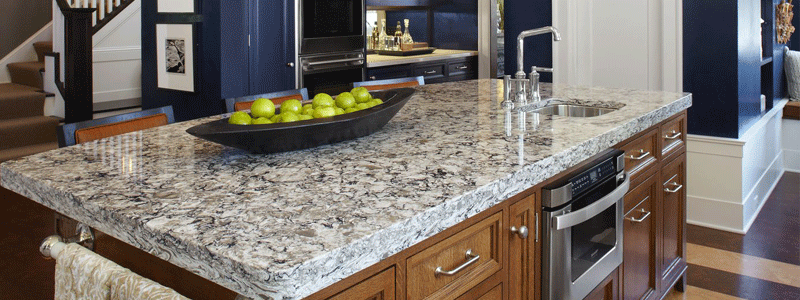
Choosing countertops for your kitchen can be an overwhelming process. With hundreds of countertop materials to choose from, it's hard to know where to start. Let us acquaint you with the different categories of countertop materials, the benefits and pitfalls of each, and which one (or ones!) may be right for your space.
1) Granite
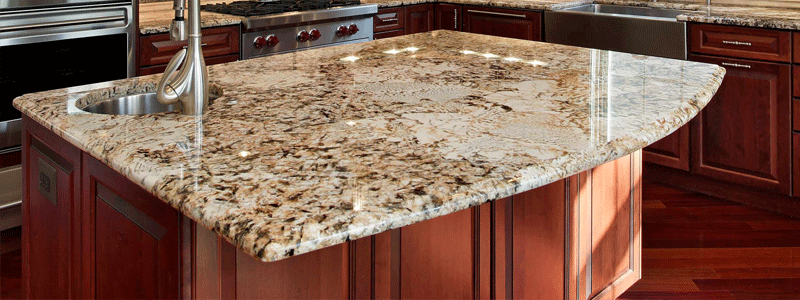
Granite is by far the most commonly used countertop material in homes today; it is made up primarily of calcified granite rock baked into slabs at very high temperatures. It has a very rustic look that works well in many kitchens. The durability of granite comes mostly from its mass - it is incredibly resistant to heat, scratches, cracks, stains, mold, etc., but this same quality makes it very heavy, so it isn't perfect for all kitchen spaces.
Advantages: high durability; heat resistance; stain/scratch resistant; wide range of colors
Disadvantages: heavy (may not work in certain kitchen spaces); can be porous (can become stained or absorb smells)
2) Marble
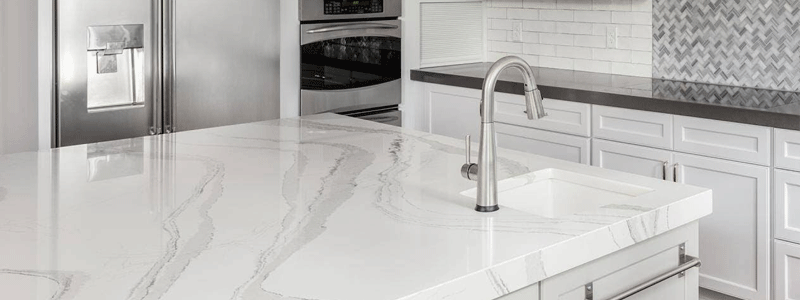
Marble is calcium carbonate, like limestone. First, it's quarried, then it's placed in a huge oven to cook at incredibly hot temperatures (more than 1,000 degrees!) That process turns it into marble. This countertop material is slightly less dense than granite and has a fine-grained appearance that looks very elegant with the right finish. It comes in many different colors and patterns - the most well-known pattern is called 'Calacatta Gold,' which resembles marbleized paper.
Advantages: low porosity; heat resistance; elegant appearance
Disadvantages: cost (it's more expensive than granite); can be scratched or stained if not properly maintained and finished.
3) Soapstone
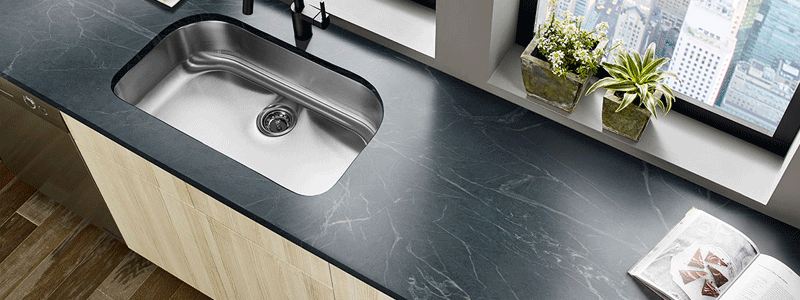
Soapstone, or steatite, is a metamorphic rock formed from extremely fine-grained minerals that recrystallize into a dense stone over thousands of years, usually in the presence of water. Since natural processes form it, no two pieces are the same - they come in all kinds of different colors! This material is much softer than granite or marble but harder than limestone. It must be sealed to protect it from stains and requires regular maintenance to maintain its original look.
Advantages: low porosity; non-toxic; can be polished to a high sheen when sealed with mineral oil or beeswax
Disadvantages: costs (it's more expensive than granite); damaged if water penetrates the surface; must seal regularly and is not dishwasher safe.
4) Concrete
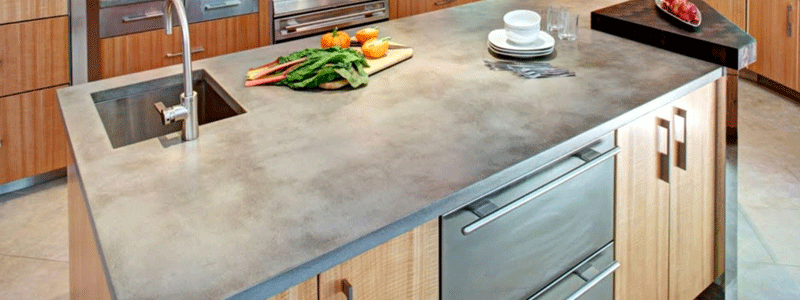
Concrete countertops are made by pouring liquid cement into a mold, then spraying on beads of concentrated color that create patterns in the material when it dries. The result is an extremely durable yet textured finish (or smooth, depending on the pattern used). This makes it possible to easily customize your countertop for personal style, making it a great choice for homeowners looking to make their kitchen truly one of a kind. Concrete is also known to be easy to clean, which makes it ideal for homes with kids or pets.
Advantages: high durability; wide range of colors and patterns available; customizable
Disadvantages: not heat-resistant; stains if you don't seal it regularly
Quartz
Quartz is made by combining powdered quartz with resins and pigments, then pouring the mixture into molds. When it hardens, you get beautiful countertops that are extremely scratch-resistant! They come in a wide variety of colors and patterns, making them another great choice for kitchen design that's truly unique to your home.
Advantages: low porosity; durable; vibrant colors
Disadvantages: can be expensive (it's more expensive than granite); damage easily if not properly sealed or cared for
Ceramic Tile
Tile countertops are a very popular option for bathrooms but can also be used in kitchens. Tile is typically made from clay mixed with minerals like quartz to make it strong enough to stand up to moisture without breaking. Tiles come in all shapes, sizes, textures, and colors to fit your kitchen design.
Advantages: low porosity; a variety of patterns available; customizable
Disadvantages: can be very heavy (depending on how thick it is); expensive (it's more costly than granite)
5) Soapstone vs. Granite
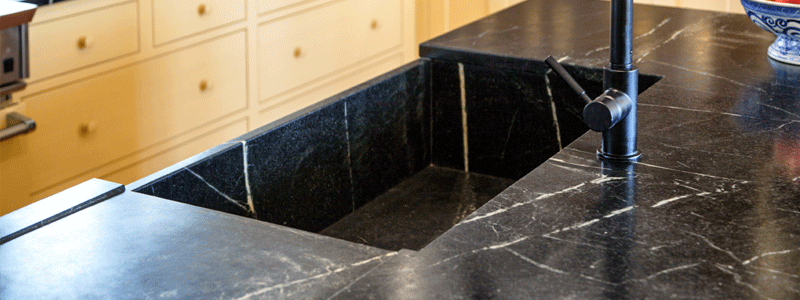
Soapstone vs. granite - what's the difference?
Soapstone has many benefits similar to those of granite, but there are some important differences between these countertop materials. For example, soapstone doesn't have much porosity, so it's less likely to absorb smells than granite is. It's also one of the best heat-resistant countertop materials available - it can tolerate very high temperatures without breaking or cracking, so you won't have to worry about ruining your countertops while cooking.
However, soapstone can be scratched or stained if not properly maintained and finished - this usually requires professional help at least every year or two. Granite is more affordable than most other countertop options on the market. It has a rustic look that works well in many kitchen spaces, although it isn't quite as heat-resistant as soapstone, making it less suitable for use with stovetops.
How to Choose Between Concrete Materials?
When choosing between concrete countertop materials, it's important to keep in mind the benefits and drawbacks of each one as you consider your material choice. In general, concrete is a durable, low-maintenance alternative to other popular options like quartz or ceramic tile. It allows endless design possibilities thanks to its wide variety of colors and patterns.
In most cases, it will be best to choose a color that matches the surrounding decor - this ensures a cohesive look throughout your kitchen. But there are some creative ways you can use stained concrete as well! For instance, many homeowners choose darker stains for more dramatic contrasts against stainless steel appliances or lighter countertop materials like white quartz or marble. If you want a truly unique kitchen space, think about what color would suit your taste and style best!
If you want to learn more about choosing a concrete countertop material, contact us today for a free consultation. We are proud to serve the Ann Arbor area with the highest quality products and services! Our team would be happy to help you figure out which concrete countertop material is right for your home.








